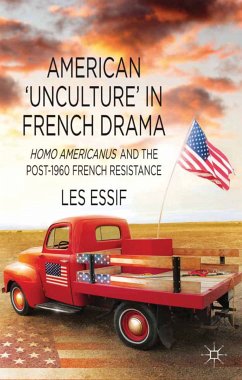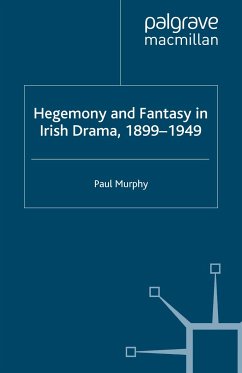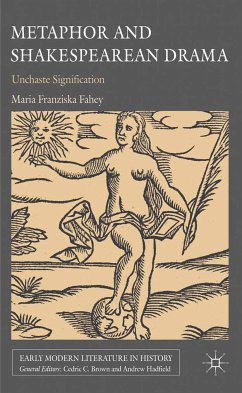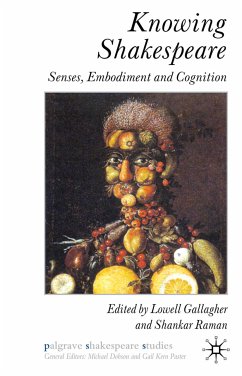
American 'Unculture' in French Drama (eBook, PDF)
Homo Americanus and the Post-1960 French Resistance
Versandkostenfrei!
Sofort per Download lieferbar
40,95 €
inkl. MwSt.
Weitere Ausgaben:

PAYBACK Punkte
20 °P sammeln!
A book about the role America plays in the French imagination, as it translates to the French stage. Informed by a rich variety of Western cultural scholarship, Essif examines two dozen post-1960 works representing some of the most innovative dramaturgy of the last half century, including works by Gatti, Obaldia, Cixous, Koltes, and Vinaver.
Dieser Download kann aus rechtlichen Gründen nur mit Rechnungsadresse in A, B, BG, CY, CZ, D, DK, EW, E, FIN, F, GR, HR, H, IRL, I, LT, L, LR, M, NL, PL, P, R, S, SLO, SK ausgeliefert werden.












